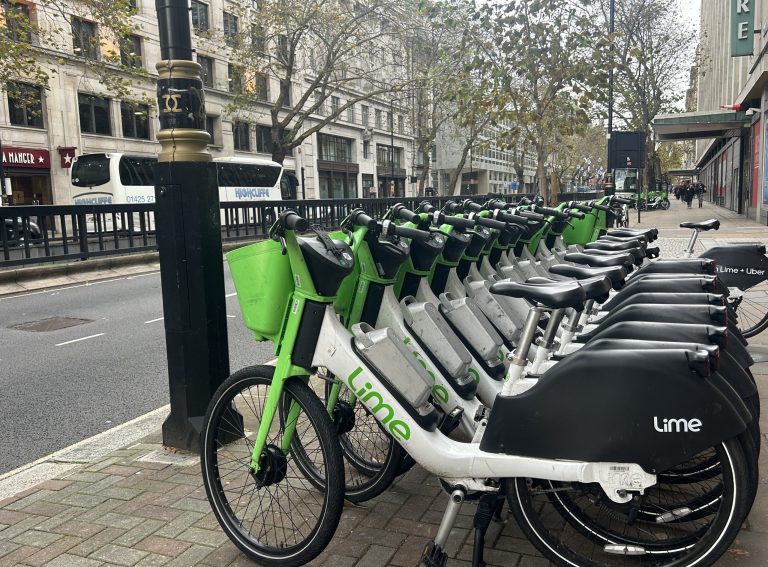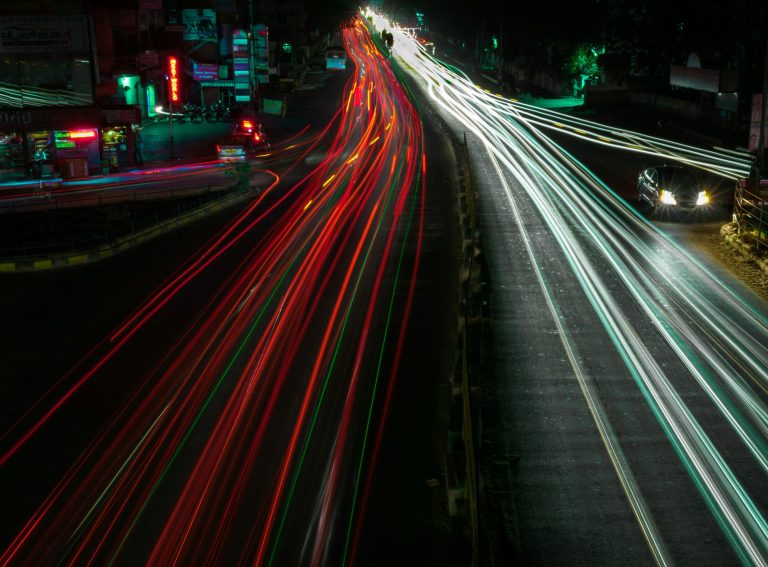Today millions of people will be heading out to their nearest polling station to vote for the next UK Government.
Gearing up for the result, Zag compiles all the transport pledges set out in the top five party manifestos. According to YouGov, these are: Labour, Conservatives, Reform UK, Liberal Democrats, and the Green Party.
“The next government will inherit a hot mess in our transport system,” Greenpeace UK Policy Director Dr Doug Parr told Zag Daily. “From crumbling railway services – particularly in the north of England – to vanishing bus routes and flip-flopping on electric vehicle incentives.
“Most of the parties, including Labour, intend to bring back the 2030 phase out date for new petrol and diesel cars and vans, after the Conservatives rolled back this target. But there was a mixed bag on public transport with only the Green Party pledging the level of financial support needed to boost bus, rail and cycling infrastructure expansion and electrification.
“There is a clear divide between the parties on limiting frequent flying, airport expansion and improving air quality. Labour and the Conservatives have little to offer on this score, while the Green Party and Liberal Democrats both back progressive policies that would limit the most polluting forms of flying and clean up the air we breathe.”
Labour
- Maintain and renew the road network to serve drivers, cyclists and other road users.
- Support the transition to electric vehicles by accelerating the rollout of charging points and restoring the phase-out date of 2030 for new cars with internal combustion engines.
- Standardise the information supplied on the condition of batteries to support buyers of second-hand electric cars.
- Give local leaders new powers to franchise local bus services, to give local communities control over routes and schedules.
- Give mayors the power to create integrated transport systems.
- Promote sustainable aviation fuels and encourage airspace modernisation.
- Bring railways into public ownership.
- Introduce a long-term strategy for transport to ensure the timely delivery of infrastructure.
- Promote active travel networks.
- Fix one million potholes each year across England.
Conservatives
- Spend the £36 billion saved from HS2 on other transport projects. The money saved in the North or the Midlands will be spent there.
- Invest £4.7 billion for smaller cities, towns and rural areas in the North and Midlands to spend on transport.
- Invest £8.3 billion to fill potholes and resurface roads.
- Invest £8.55 billion for city regions to spend on local priorities and allow Mayors to invest in strategic roads.
- Invest £12 billion in delivering the Northern Powerhouse Rail section between Manchester and Liverpool, funding electrification in Hull, and building a new station in Bradford.
- Invest £1.75 billion in the Midlands Rail Hub to boost connectivity in the Midlands, and deliver more frequent rail services at 50 stations.
- Invest £1 billion in bus routes across the North and the Midlands.
- Improve the accessibility of 100 train stations.
- Upgrade railways in the South West.
- Invest £1 billion in electrifying the North Wales Main Line.
- Reopen Beeching lines and stations.
- Complete HS2 between London Euston and the West Midlands.
- Support people to choose electric cars with nationwide charging infrastructure.
- Put automated vehicles on British roads after recent legislation.
- Deliver the Zero Emission Vehicle Mandate.
- Introduce a Sustainable Aviation Fuel mandate.
- Roll out nationwide pay-as-you-go contactless ticketing.
- Work with Active Travel England to make it safer for people to walk and cycle.
- Introduce a Rail Reform Bill to create Great British Railways to modernise the railway system.
- Maintain the pledge to build no new smart motorways but improve existing ones.
- Reverse the recent ULEZ expansion in London.
- Ban mayors and local councils from introducing pay-per-mile schemes.
- Put any new Low Traffic Neighbourhood schemes to a referendum and introduce a ‘right to challenge’ existing Low Traffic Neighbourhoods and 20mph schemes.
- Keep the £2 bus fare cap.
Reform UK
- Scrap the rest of HS2 to save £25 billion.
- Legislate to ban ULEZ Clean Air Zones and Low Traffic Neighbourhoods.
- Scrap Net Zero to save up to £30 billion per year for the next 25 years.
- Stop the ban on petrol and diesel cars, and place no legal requirements on manufacturers to sell electric cars.
- Scrap 20mph zones other than where safety is critical.
- Focus on coastal regions, Wales, the North, and the Midlands to improve rail and road links and integrate services.
- Overhaul and merge the National Infrastructure Commission and the Infrastructure Bank.
- Bring 50% of each utility into public ownership with the other 50% owned by a UK pension fund.
Liberal Democrats
- Roll out charging points including residential on-street points and ultra-fast chargers at service stations.
- Support new charging points with an upgraded National Grid and a step-change in local grid capacity.
- Cut VAT on public charging to 5% and require all charging points to be accessible with a bank card.
- Reintroduce the plug-in car grant.
- Restore the requirement that every new car and small van sold from 2030 should be zero-emission.
- Freeze rail fares and simplify ticketing on public transport
- Extend electrification of Britain’s rail network and establish a 10-year plan.
- Improve stations and reopen smaller stations.
- Give local authorities more power to franchise bus services and simplify funding so that bus routes can be restored and new routes added where needed.
- Introduce a new nationwide active travel strategy with new cycling and walking networks.
- Give local councils more of the road budget to maintain existing roads, pavements and cycleways and to repair potholes.
- Take steps to reduce demand for flying, and invest in research and development to make the UK a world leader in zero-carbon flight.
- Boost bus services by supporting rural bus services and encouraging alternatives such as on-demand services where buses aren’t viable.
- Maintain the £2 bus fare cap while fares are reviewed.
- Replace multiple funding streams with one integrated fund for local authorities for expanding bus services and switching to zero-emission vehicles.
- Extend programmes to encourage local authorities and bus operators to switch to zero-emission buses.
- Establish Rail Agency, a new public body which holds train companies to account, and sanction and sack operators that don’t provide good service.
- Explore an annual pass for all railways.
- Improve accessibility at stations through the Access for All programme.
- Delivery Northern Powerhouse Rail to connect cities across the North of England.
- Review the cancellation of HS2 Northern leg.
- Implement light rail schemes for trams and tram-trains when appropriate solutions.
- Introduce a national freight strategy supported by growth targets and electrification of routes.
- Extend half-fares on buses, trams and trains to 18-year-olds.
- Introduce a ‘Young Persons Bus Card’, similar to railcard, which gives 19-25 year olds one-third off bus and tram fares.
- Reform taxation of international flights to focus on those who fly the most.
- Introduce a super tax on private jets and remove VAT exemptions for private, first-class, business-class flights.
- Require airlines to show carbon emissions for domestic flights compared with travelling by rail.
- Ban short domestic flights where a direct rail option of less than 2.5 hours is available unless planes are alternative-fuelled.
- Temporarily prohibit net airport expansion until a national capacity and emissions management framework is in place, and oppose the expansion of Heathrow, Gatwick, Luton, Stansted or London City airports and any new airport in the Thames Estuary.
- Devolve greater decision-making powers and resources to local authorities to design public transport infrastructure around community needs, including powers to introduce network-wide ticketing.
- Integrate bus, rail and light rail ticketing systems to introduce a daily fare cap.
Green Party
- Increase annual public subsidies for rail and bus travel to £10 billion and provide free bus travel for under-18s.
- Invest £19 billion over five years to improve public transport, support electrification, and invest in new cycleways and footpaths.
- Bring railways into public ownership.
- Give local authorities control over and funding for bus services.
- Invest £2.5 billion per year in cycleways and footpaths.
- Push for a bus service in every village.
- Invest in the electrification of the rail network.
- Introduce a national strategic approach to reopen railway lines and stations.
- Introduce road-pricing.
- Replace all petrol and diesel vehicles with electric vehicles within a decade, and support an extensive vehicle scrappage scheme with up to £5 billion funding per year by the end of Parliament.
- Roll out electric vehicle charging points.
- End sales of new petrol and diesel vehicles by 2027, and end the use of petrol and diesel vehicles on the road by 2035.
- Give government support to ordinary car users and small businesses to replace their vehicles.
- Make road tax proportional to vehicle weight.
- Set a 20mph default speed limit on all built-up areas
- Reimagine residential streets to reduce traffic and open them up for community use.
- Support firms using heavy good vehicles to transition away from internal combustion engines and make use of rail freight.
- Adopt Active Travel England’s objective for 50% of trips in England’s town and cities to be walked, wheeled or cycled by 2030.
- Introduce a frequent-flyer levy to reduce the impact of the 15% of people who take 70% flights.
- Ban domestic flights that would take less than three hours by train.
- Make the carbon tax apply to all kerosene for aviation sold in the UK.
- Halt the expansion of airport capacity and invest in skills so aviation and airport workers can move into alternative jobs as the number of flights decline.






